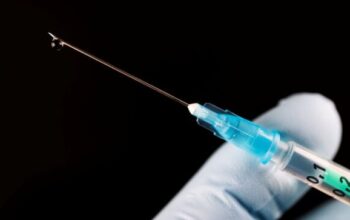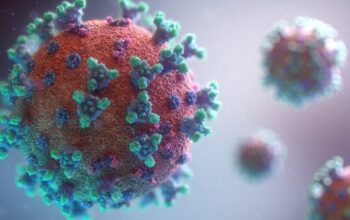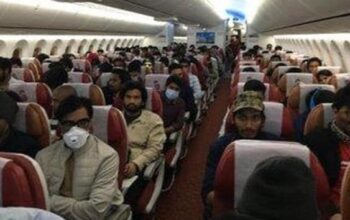Trip bans and other snap defenses that countries threw up against omicron, the new Covid-19 variant, are buying time for scientists to answer crucial questions that could help another surge of deaths.
Labs in Europe, theU.S. and Africa are preparing for tests to see how the new variant is likely to bear in people who’ve been vaccinated or preliminarily infected. Real- world exploration will be important too, as health authorities cover the outbreak in South Africa nearly to find out how much more transmittable the new variant will be as it spreads and whether it’s more dangerous or deadly.
The questions will take weeks to answer, scientists and policy makers said Friday. The hunt for understanding starts in the variant’s dramatic pattern of 50 mutations, further than 30 of which are on the contagion’s shaft protein, which is the armament Covid-19 uses to foray victims’ cells. It’ll continue via lab work and eventually in compliances of illness and transmission patterns in real life.
What is clear so far is that a constellation of mutations has come together that may make omicron spread more snappily, said Wendy Barclay, head of the department of contagious complaint at Imperial College London.
” Taken together on paper, it’s veritably biologically presumptive that this contagion has increased transmissibility,”Barclay said in a briefing Friday. Experimenters must apply the knowledge they have gained in further than a time of violent study of the contagion, she said.”That is where you start, and also you try and back up that kind of approach by looking at the epidemiology and the laboratory- grounded studies.”
Wily Virus
The first job of a contagion is survival in its hosts, and nature has programmed them to shift shapes. SARS-CoV-2 has been shifting and changing since it was first linked, with the first variant of concern– nascence– designated in December 2020. Omicron, preliminarily known asB.1.1.529, is the fifth variant of concern the World Health Organization has named.
Omicron may have a growth advantage over the others, still, because it’s been plant at faster rates than in former surges, the WHO said on Friday. It may also pose a lesser threat of reinfection than other variants of concern, the WHO said.
There are hints in omicron’s spread in South Africa that it may be more transmittable, said Sharon Peacock, a professor of public health and microbiology at the University of Cambridge who also heads the Covid-19 GenomicsU.K. institute.”When the Ministry of Health saw the figures were doubling every day, the question that they asked was,’Well, where are these cases coming from?'”
Those questions and the quick surveillance by South Africa and its neighbors may have put the rest of the world in a position to buy further time than was possible when the delta variant was arising in India, said Jeffrey Barrett, director of the Covid-19 Genomics Initiative at the Wellcome Sanger Institute in theU.K.
“They plant this, understood that it was a problem and told the world extremely presto,”Barrett said.”It took numerous, numerous weeks into India’s extremely terrible surge before it came clear what was going on, and by that point delta had formerly planted itself in numerous corridor of the world.
Knowledge Sprint
The impact the new variant will have on vaccines could come clear fairly soon. BioNTech SE, which works with PfizerInc. on the world’s best- dealing Covid vaccine, said it’s beginning lab studies on the variant and should have the first data on how it interacts with the vaccine within two weeks.
BioNTech and Pfizer have long promised that they’ll be suitable to roll out a new interpretation of their vaccine within 100 days if necessary.
ModernaInc. is also studying how well its current vaccine supporter cure neutralizes omicron, with data probably in the coming weeks. The company said on Friday that it’s also working on a high- cure interpretation of the supporter, new multivalent boosters and a new supporter specific to omicron. Moderna said it’s generally suitable to get new experimental vaccines into testing in 60 to 90 days.
Mutations may also help omicron scape the antibody treatments, similar as Roche Holding AG and Regeneron PharmaceuticalsInc.’s Ronapreve, that have come a dependence of remedy for people who can not muster an acceptable vulnerable response on their own, ICL’s Barclay and other scientists said.
Roche’s experimenters are studying the new variant, said spokesperson Karsten Kleine, and it’s too early to say how it’ll interact with the antibody blend.
GlaxoSmithKline Plc, which markets a Covid antibody with Vir BiotechnologyInc., said it believes its antibody will presumably work against the variant because it targets part of the shaft protein that is participated among numerous different, distantly affiliated coronaviruses. The company is working urgently to confirm that in the lab, it said in a statement.
Antiviral Arsenal
Indeed if the new variant resists vaccines and monoclonal antibodies, croakers will not be out of munitions.
Antivirals similar as the experimental lozenge being developed by PfizerInc. will presumably still work, Barclay said.
That is because of the way those capsules act in the body. Rather of targeting the contagion’s shaft protein, as vaccines and other treatments do, they attack in different way to help the contagion from multiplying. That makes the new variant’s shaft-protein mutations less likely to repel the capsules.
“There are no mutations that would gesture a change in vulnerability,”Barclay said.
The antivirals are not approved for use yet. Pfizer onNov. 16 filed for an exigency- use authorization for the drug in theU.S.; a analogous review began in the European Union three days latterly.
A alternate lozenge, from Merck &Co., ran into a chain after trial results showed it was less effective than had been allowed. TheU.S. Food and Drug Administration staff raised questions about whether it could beget birth blights, bone and cartilage toxin and inheritable mutations. A panel of FDA counsels will meet Tuesday to review the lozenge.



